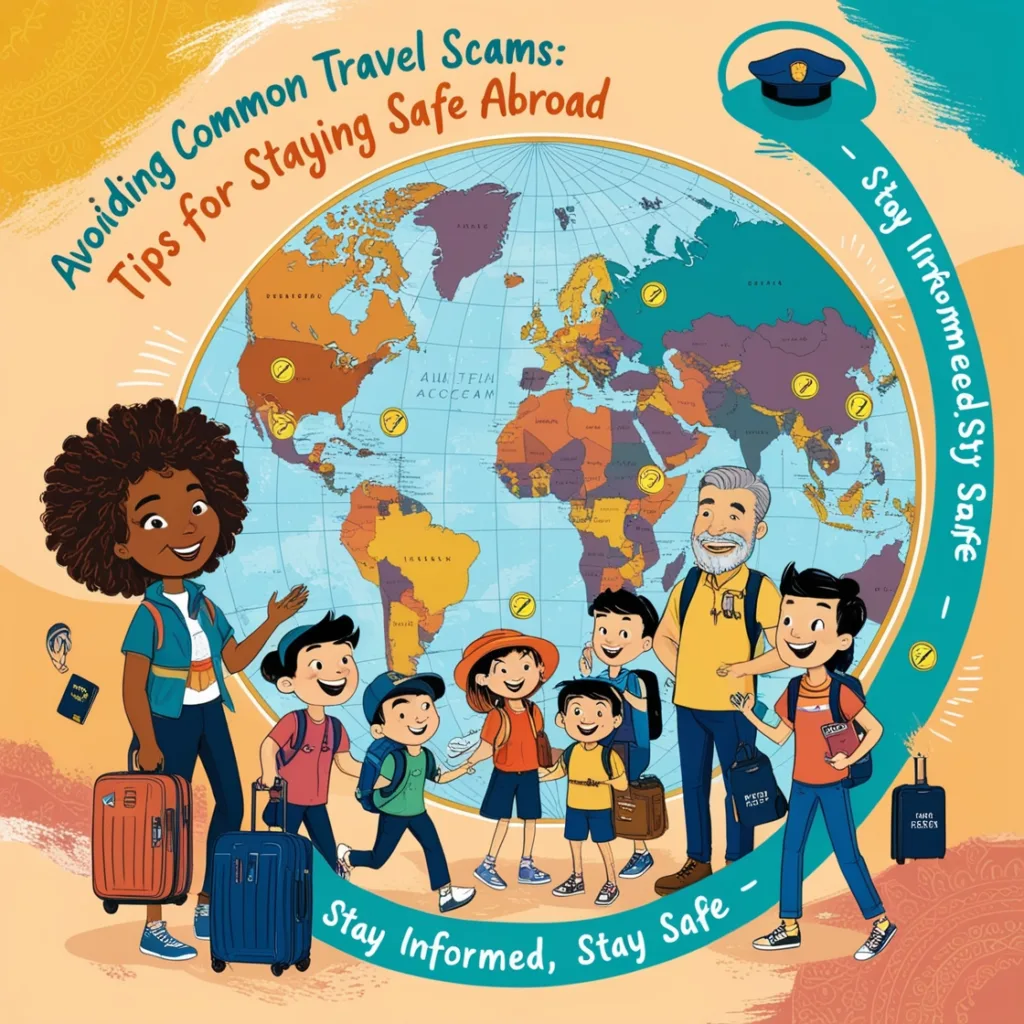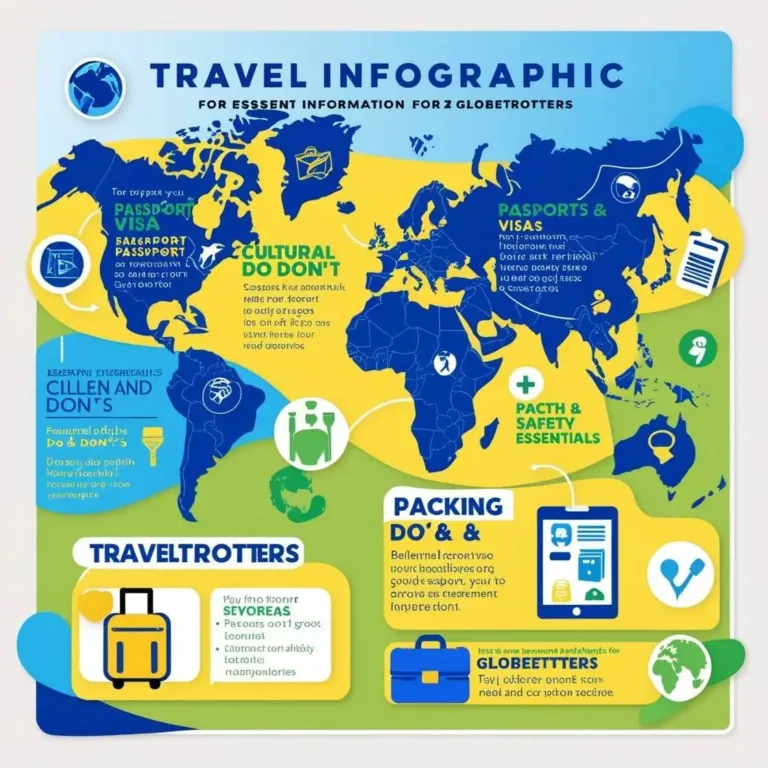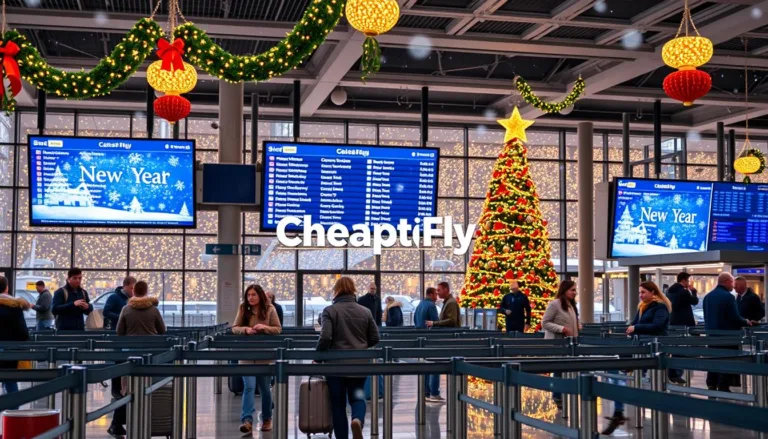Avoiding 8Common Travel Scams: Tips for Staying Safe Abroad
Embarking on a journey to a new destination can be an exhilarating experience, but it also comes with its fair share of risks. One of the most common challenges travelers face is the threat of falling victim to various scams and scams. From overcharging taxi drivers to crafty pickpockets, these deceptive tactics can quickly turn a dream vacation into a nightmare.

In this comprehensive guide, we’ll explore the most prevalent travel scams and provide you with practical tips to help you stay safe and protect your hard-earned money. Whether you’re a seasoned globetrotter or a first-time adventurer, this article will equip you with the knowledge and strategies needed to navigate the world with confidence and vigilance.
Recognizing Common Travel Scams: Stay Vigilant and Informed
The first step in avoiding travel scams is to understand the most prevalent scams that target unsuspecting tourists. By familiarizing yourself with these tactics, you’ll be better equipped to identify and avoid them during your travels.https://wwhttps://www.cheaptofly.online/2024/11/06/50-top-destinations-in-africa/
Some of the most common travel scams include:
• Overcharging Taxi Drivers: Unscrupulous taxi drivers may try to take advantage of tourists by charging exorbitant fares or taking longer routes to their destination.
• Pickpocketing and Theft: Skilled pickpockets often operate in crowded tourist areas, using distraction techniques to steal valuables from unsuspecting victims.
• Fake Tour Guides and Attractions: Scammers may pose as licensed tour guides or promote bogus attractions, luring tourists with false promises of exclusive experiences.
• Counterfeit Goods and Currency Exchange Scams: Travelers may be targeted by vendors selling counterfeit goods or offering unfavorable currency exchange rates.
• Accommodation Scams: Fraudulent listings on rental platforms or shady hotel operators can lead to subpar accommodations or even financial losses.
• Overfriendly Strangers: Beware of individuals who seem overly friendly and eager to help, as they may be attempting to distract you or gain your trust for nefarious purposes.https://www.youtube.com/shorts/ARlyRaSfldE
By being aware of these common scams, you can develop a heightened sense of vigilance and learn to recognize the warning signs, making it much harder for scammers to take advantage of you.
Preparing for Your Trip: Proactive Steps to Enhance Your Safety
Before you embark on your journey, there are several proactive steps you can take to minimize your vulnerability to travel scams:
• Research Your Destination: Thoroughly research your destination to familiarize yourself with the local customs, laws, and common scams targeting tourists. This knowledge will help you navigate your surroundings with greater confidence and awareness.
• Make Copies of Important Documents: Photocopy or scan your passport, ID, and other essential documents, and store the copies separately from the originals. This will make it easier to replace them if they are lost or stolen.
• Invest in a Secure Wallet or Purse: Consider using a RFID-blocking wallet or purse to protect your credit cards and personal information from electronic pickpocketing.
• Limit the Items You Carry: Avoid carrying large amounts of cash, valuable jewelry, or unnecessary personal items. Only take what you need for the day to minimize your exposure to potential theft.
• Inform Your Bank and Credit Card Companies: Notify your bank and credit card companies about your travel plans to ensure they don’t flag your transactions as suspicious.
• Consider Travel Insurance: Purchasing travel insurance can provide valuable protection against unexpected events, such as trip cancellations, medical emergencies, or lost or stolen belongings.
By taking these proactive steps, you can significantly reduce the likelihood of falling victim to common travel scams and enjoy a safer, more carefree journey.
Navigating Transportation: Staying Safe on the Road and in the Air
Transportation is a critical aspect of any trip, and it’s also an area where travelers can be particularly vulnerable to scams. Here are some tips to help you navigate transportation safely:
• Use Reputable Taxi Services: When arriving at your destination, research and use only licensed, reputable taxi companies. Avoid hailing cabs on the street or accepting rides from unsolicited drivers.
• Negotiate Fares Upfront: If you must use a taxi, negotiate the fare before the journey begins to avoid being overcharged at the end of the ride.
• Consider Ride-Sharing Apps: Apps like Uber or Lyft can provide a safer and more transparent alternative to traditional taxis, with upfront pricing and driver ratings.
• Be Cautious with Airport Transfers: Be wary of individuals offering airport transfer services, as they may not be legitimate. Instead, pre-book your airport transfer or use public transportation.
• Beware of Luggage Assistance Scams: Decline any unsolicited offers to help with your luggage, as this could be a ploy to steal your belongings.
• Trust Your Instincts: If a transportation situation feels uncomfortable or suspicious, trust your instincts and find an alternative option, even if it means paying a bit more.
By being vigilant and proactive with your transportation choices, you can significantly reduce the risk of falling victim to scams.
Protecting Your Valuables: Strategies for Safeguarding Your Belongings
Safeguarding your valuables is crucial when traveling, as thieves and pickpockets often target tourists. Implement these strategies to keep your belongings secure:
• Use Anti-Theft Bags and Accessories: Invest in anti-theft backpacks, crossbody bags, or money belts that feature slash-resistant materials and locking mechanisms to deter pickpockets.
• Avoid Displaying Valuables: Keep your valuable items, such as jewelry, electronics, or cash, out of sight and hidden from public view.
• Be Cautious in Crowded Areas: Be extra vigilant in crowded tourist hotspots, public transportation, and busy markets, as these are prime locations for pickpockets to operate.
• Use Secure Storage Options: When staying in accommodations, utilize the room safe or security deposit box to store your valuables, and avoid leaving them out in the open.
• Digitize Important Documents: Scan and store digital copies of your passport, ID, and other important documents on your smartphone or a secure cloud storage service.
• Avoid Carrying Large Amounts of Cash: Limit the amount of cash you carry and use credit/debit cards or mobile payment options whenever possible.
By implementing these protective measures, you can significantly reduce the risk of losing your valuable belongings to theft or scams.
Navigating Accommodations: Spotting and Avoiding common
Your choice of accommodation can also be a target for scams, so it’s essential to be vigilant when booking and during your stay:
• Research Accommodations Thoroughly: Carefully vet your accommodation options by reading reviews, checking ratings, and verifying the legitimacy of the property or rental platform.
• Book Directly with the Provider: Whenever possible, book your accommodation directly with the hotel, resort, or rental owner to avoid potential intermediary scams.
• Inspect the Property Upon Arrival: When you arrive at your accommodation, thoroughly inspect the room or rental for any discrepancies or issues, and document any concerns.
• Beware of Prepaid or Non-Refundable Bookings: Be cautious of accommodations that require full prepayment or non-refundable bookings, as these may be a sign of a potential scam.
• Trust Your Instincts: If something about your accommodation or the booking process feels off, trust your instincts and consider finding an alternative option, even if it means incurring a small penalty.
By being vigilant and proactive when booking and during your stay, you can significantly reduce the risk of falling victim to accommodation-related scams.
Navigating Local Attractions and Tours: Avoiding Fake Experiences
Visiting local attractions and taking guided tours can be a highlight of any trip, but they can also be a prime target for scams. Here’s how to spot and avoid these types of scams:
• Research Reputable Tour Operators: Before booking a tour, thoroughly research the company’s reputation, reviews, and licensing to ensure they are legitimate.
• Beware of Unsolicited Offers: Be wary of individuals or vendors who approach you on the street, offering discounted or exclusive tours. These are often ploys to lure you into a scam.
• Verify Attraction Pricing: Check the official websites or information centers for the correct pricing and opening hours of local attractions to avoid being overcharged.
• Use Licensed Guides: When booking a guided tour, ensure the guide is licensed and affiliated with a reputable tourism organization.
• Trust Your Instincts: If a tour or attraction seems suspicious or too good to be true, it’s likely a scam. Trust your instincts and politely decline the offer.
By being vigilant and researching your options, you can ensure that you have an authentic and enjoyable experience at local attractions and with guided tours.
Navigating Dining and Shopping: Protecting Yourself from Scams
Food and shopping are integral parts of the travel experience, but they can also be targets for scams. Here’s how to stay safe:
• Avoid Overpriced Restaurants: Steer clear of restaurants that aggressively tout their establishment to passersby or offer exorbitantly high prices.
• Beware of Counterfeit Goods: When shopping, be cautious of vendors selling suspiciously cheap designer items or goods that appear to be counterfeit.
• Use Caution with Currency Exchange: Only use reputable, licensed currency exchange services to avoid being ripped off by unfavorable exchange rates or counterfeit currency.
• Trust Your Instincts: If a dining or shopping experience feels uncomfortable or suspicious, don’t hesitate to leave and find an alternative option.
By being mindful and selective in your dining and shopping choices, you can enjoy these aspects of your trip without falling victim to scams.
Embracing Technology: Using Apps and Tools to Enhance Your Safety
In the digital age, there are numerous apps and tools that can help you stay safe and avoid travel scams:
• Travel Safety Apps: Apps like TripWhistle, bSafe, or Noonlight can provide emergency assistance, location tracking, and other safety features.
• Mapping and Navigation Apps: Use reliable mapping and navigation apps, such as Google Maps or Citymapper, to avoid being led astray by scammers posing as tour guides.
• Currency Conversion Apps: Apps like XE Currency or Google Currency Converter can help you quickly and accurately determine the real-time exchange rate, protecting you from currency exchange scams.
• Accommodation Review Apps: Check reviews on platforms like Booking.com, Tripadvisor, or Airbnb to identify potential red flags or scams related to your accommodation.
• Payment Apps: Consider using secure payment apps like Apple Pay, Google Pay, or PayPal to minimize the risk of credit card fraud or theft.
By leveraging these digital tools, you can enhance your travel safety and stay one step ahead of potential scammers.
Maintaining Vigilance and Adapting to Changing Circumstances
Avoiding travel scams is an ongoing process that requires constant vigilance and adaptability. As you navigate your journey, keep the following principles in mind:
• Stay Alert and Trust Your Instincts: Remain vigilant and attuned to your surroundings, and trust your gut if a situation feels off or suspicious.
• Be Flexible and Adaptable: Be willing to adjust your plans or change course if you encounter a potentially risky situation. Your safety should always be the top priority.
• Keep Learning and Sharing: Continue to research and educate yourself about the latest travel scams targeting your destination. Share your knowledge and experiences with fellow travelers to help them stay safe.
• Maintain a Positive Mindset: While it’s important to be cautious, don’t let the fear of scams overshadow the joy and excitement of exploring new places. Approach your travels with a positive mindset and a sense of adventure.
By embracing these principles, you can navigate the world with confidence, minimizing your vulnerability to scams and enjoying a truly rewarding travel experience.
Traveling the world is a truly enriching experience, but it also comes with its fair share of risks. By understanding the most common travel scams and implementing the strategies outlined in this guide, you can significantly reduce your chances of falling victim to deceptive tactics.
Remember, the key to staying safe abroad is to be proactive, vigilant, and adaptable. Thoroughly research your destination, prepare your documents and valuables, and trust your instincts when something feels off. With the right mindset and the right tools, you can navigate the world with confidence, focusing on creating unforgettable memories rather than worrying about potential scams.
As you embark on your next adventure, embrace the excitement of exploring new cultures and cuisines, while keeping your wits about you. By doing so, you’ll be able to fully immerse yourself in the joys of travel, secure in the knowledge that you have the knowledge and skills to protect yourself from common scams.







